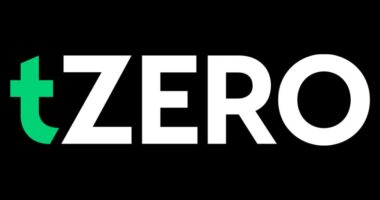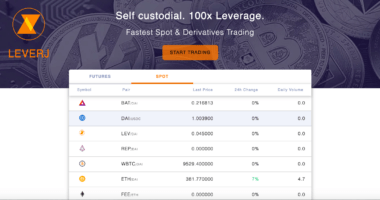Google’s parent company, Alphabet, witnessed significant stock price appreciation following quarterly earnings that exceeded analyst projections. The technology giant delivered robust revenue growth across multiple business segments while demonstrating improved cost discipline.
Investors responded enthusiastically to results suggesting the company successfully navigated challenging macroeconomic conditions. A technology sector analyst at Tarillium examines the drivers behind Alphabet’s strong performance and sustainability outlook.
Advertising Revenue Resilience
Alphabet’s core advertising business demonstrated greater resilience than many observers anticipated. Search advertising revenue, the company’s largest segment, grew year-over-year despite economic headwinds. This performance suggested advertisers maintained spending on Google’s platform due to its effectiveness.
YouTube advertising revenue exceeded expectations, indicating the video platform’s continued monetization success. The platform benefits from secular shifts toward video content consumption. YouTube’s ability to capture advertising dollars from traditional television continues progressing.
The advertising recovery trajectory appeared more robust than competitors experienced. This divergence highlighted Google’s dominant market position and advertiser preference for its platforms. Smaller digital advertising platforms struggled comparatively.
Cloud Computing Momentum
Google Cloud Platform reported accelerating revenue growth, closing the gap with market leaders. The cloud division has been an investment priority receiving substantial resource allocation. These investments appear to be yielding returns as customer adoption increases.
Profitability in the cloud segment showed meaningful improvement. The division has historically operated at losses as Google invested for growth. Approaching breakeven or profitability would mark significant milestones for this business unit.
Major enterprise customer wins provided validation of Google’s cloud strategy. Large organizations are selecting Google Cloud for mission-critical workloads. These strategic relationships often expand over time generating substantial lifetime value.
AI Integration Progress
Management commentary highlighted successful artificial intelligence integration across product portfolios. Google’s AI capabilities span consumer applications and enterprise cloud services. These technological advantages could drive differentiation versus competitors.
Generative AI features in search represent potentially transformative enhancements. The company carefully balances innovation with user experience considerations. Search quality maintenance remains paramount while incorporating AI capabilities.
AI infrastructure investments position Google favorably for long-term competitive battles. The company operates some of the world’s most advanced AI research facilities. This technical foundation supports product development and cloud service offerings.
Cost Management Discipline
Operating expense growth moderated significantly, demonstrating management’s commitment to efficiency. Previous periods saw criticism of Alphabet’s spending discipline. Recent results suggested meaningful cultural shifts toward cost consciousness.
Headcount growth slowed substantially with selective hiring in priority areas. The company implemented workforce reductions targeting lower-priority projects. This reallocation focused resources on highest-impact opportunities.
Capital expenditure levels remained elevated but showed more disciplined allocation. Investments concentrate on data center infrastructure supporting AI and cloud growth. These strategic investments should generate future returns justifying current outlays.
Regulatory Overhang Persists
Despite strong financial results, regulatory challenges continue shadowing Alphabet. Antitrust investigations in multiple jurisdictions create ongoing uncertainty. Potential remedies could materially impact business operations.
The company faces scrutiny regarding search market dominance and advertising practices. Authorities question whether Alphabet’s market position constitutes anticompetitive behavior. Legal proceedings will likely continue for years.
Management maintains that its success reflects superior products rather than anticompetitive conduct. The company argues users choose Google because it delivers best-in-class results. Proving this argument in legal proceedings remains challenging.
Other Bets Portfolio
Alphabet’s “Other Bets” portfolio, encompassing experimental ventures, continued generating losses. Waymo autonomous vehicles and Verily life sciences require ongoing substantial investment. These ventures represent long-term optionality but burden near-term profitability.
Investors remain divided on Other Bets’ strategic value. Some view these investments as essential innovation ensuring long-term relevance. Others see resource diversion from core profitable businesses.
Occasional spin-offs or closures of underperforming ventures could unlock shareholder value. More disciplined portfolio management might reduce drag on consolidated results. Management appears increasingly willing to sunset unsuccessful experiments.
Valuation Considerations
Alphabet’s stock trades at reasonable multiples relative to both earnings and free cash flow. The valuation appears attractive compared to other mega-cap technology companies. This relative discount partially reflects regulatory uncertainties.
Free cash flow generation remains extremely robust, funding dividends, buybacks, and investments. The company’s capital allocation flexibility provides strategic optionality. Management has demonstrated willingness to return cash to shareholders.
Growth expectations have moderated from earlier periods but remain healthy. Analysts model sustainable mid-teens percentage growth in earnings over coming years. This growth profile supports current valuation levels.
Competitive Positioning
Alphabet maintains dominant positions in search and digital advertising despite emerging competitors. New artificial intelligence applications pose potential disruption threats to traditional search. The company must evolve offerings to maintain relevance.
Competition from Amazon and Microsoft in cloud computing requires continued investment and innovation. These well-resourced rivals are committed to cloud market leadership. Google Cloud must differentiate beyond just matching competitors.
Video streaming competition intensifies as traditional media companies and technology giants vie for audiences. YouTube’s position remains strong but requires continuous innovation. Content costs and creator payments impact profitability.
Outlook Assessment
The near-term trajectory appears positive following strong results and guidance. Sustaining momentum requires continued execution across business units. Any stumbles could trigger profit-taking given recent appreciation.
Longer-term success depends on successfully navigating technological transitions. Artificial intelligence represents both opportunity and threat. Alphabet must prove its AI capabilities translate into monetization.
Regulatory outcomes remain wild cards potentially reshaping business models. Worst-case scenarios involve business unit divestitures or operational restrictions. Best-case outcomes allow largely unimpeded operations. The ultimate resolution will significantly impact long-term value creation.










